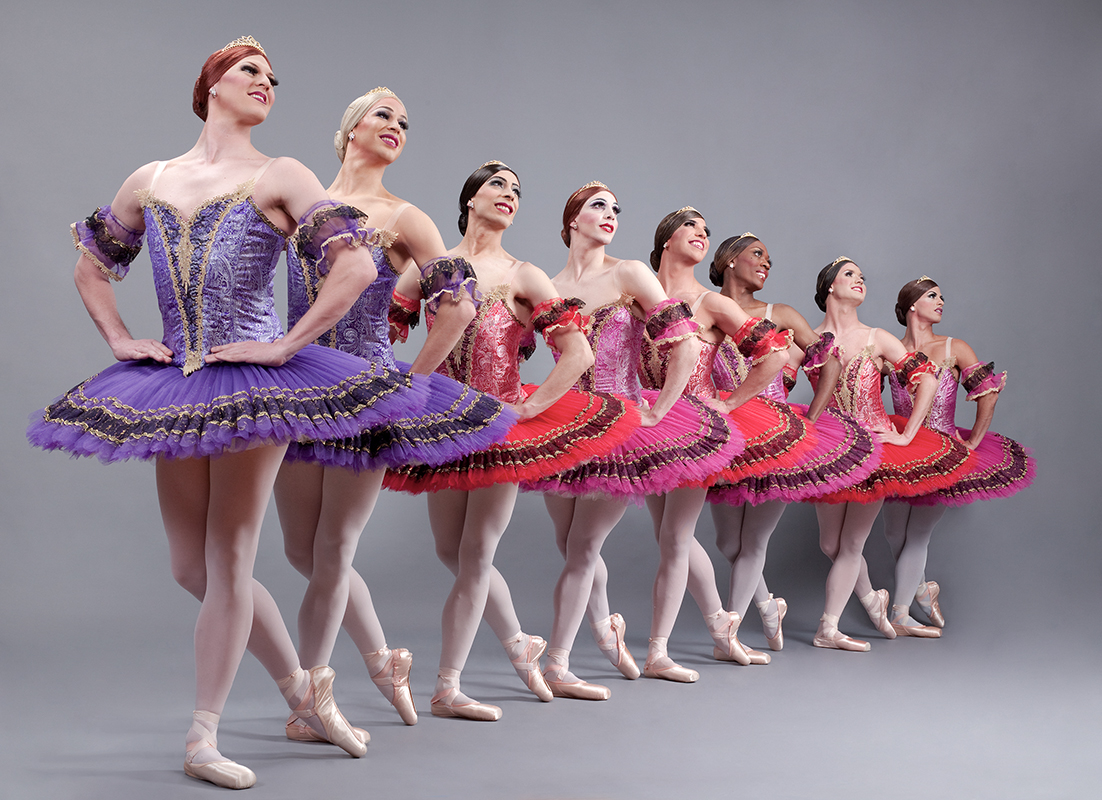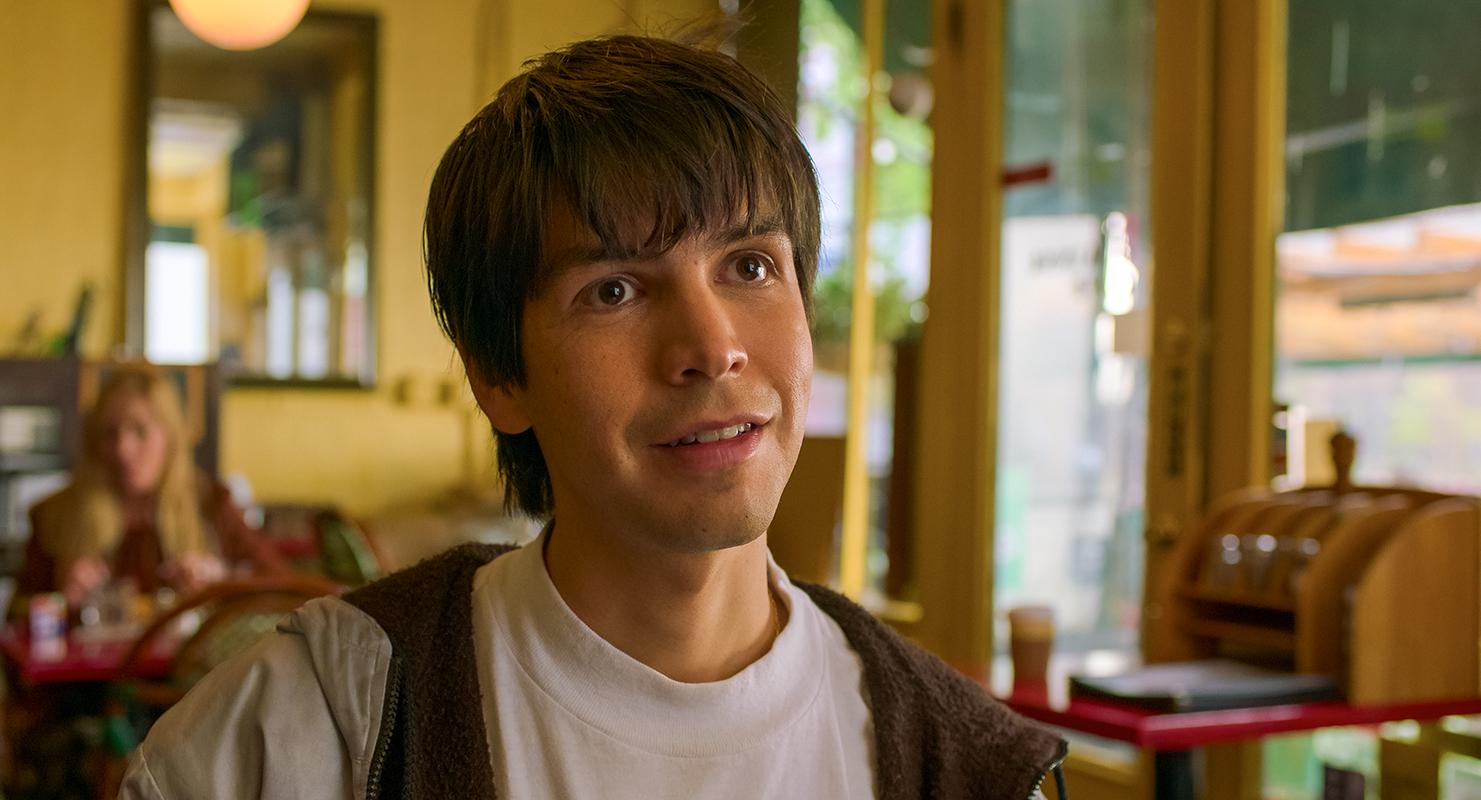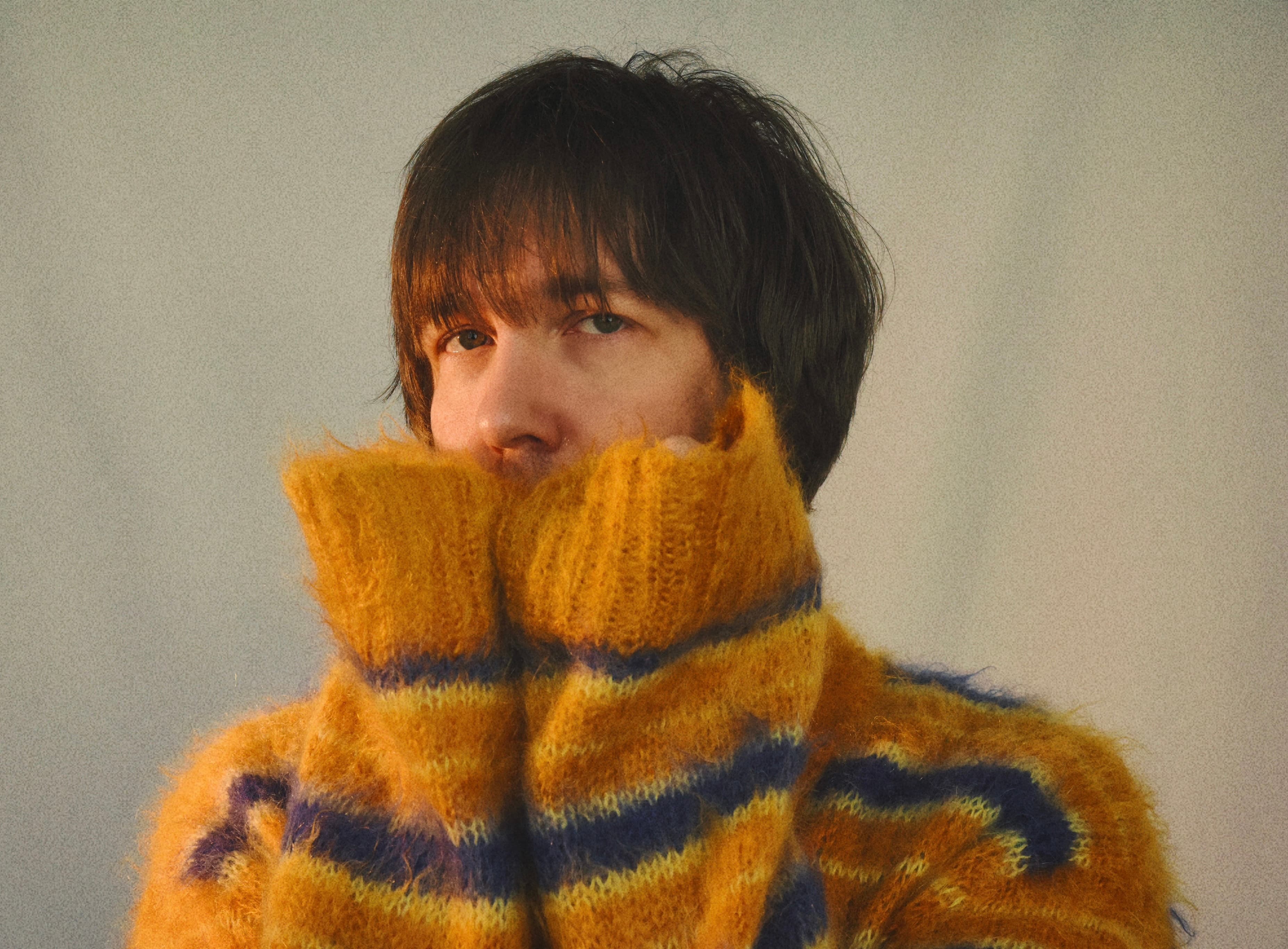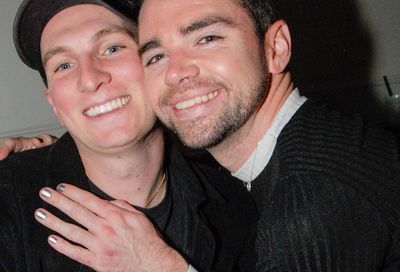‘Love to Love You’ Review: Summer Love
HBO’s enthralling 'Love to Love You, Donna Summer' reveals an eclectic artist who didn’t set out to rule disco, but she did.
By André Hereford on May 19, 2023 @here4andre

Donna Summer fans might wish for a more comprehensive documentary bio than HBO’s Love to Love You, Donna Summer (★★★★★), but it’s hard to imagine a more intimate portrait of the woman, artist, mother, and hit-making Queen of Disco than this fascinating music-filled odyssey.
Co-directed by Oscar-winning filmmaker Roger Ross Williams and actress-director Brooklyn Sudano, the middle of Summer’s three daughters, Love to Love You is framed as the family’s attempt to, as Brooklyn puts it, “figure out the many pieces of who Mom really was.”
Summer, who succumbed to lung cancer in May 2012, provides the filmmakers key pieces to the puzzle by way of her songs and performances, recorded interviews, and footage she shot herself with her treasured Sony movie camera.
At the height of her ’70s fame as pop’s First Lady of Love, Summer bought the camera because she loved making movies — and to entertain herself and the crew while on tour, according to her sister Mary Ellen, who sang backup. The video skits and home movies reveal the singer to be an unapologetic goofball, far from the gyrating diva of so-called Sex Rock that her label Casablanca Records was selling.
Sex siren was merely a role she played, Summer explains in an interview voiceover. She considered herself more of a natural comedian who rarely got a chance to show it. Born and raised in Boston, with a strict upbringing in the AME Church, she emerged from a cloistered ’50s childhood into the free-wheeling ’60s as the hippie lead singer of a Boston rock band called The Crow. “I was the crow,” she quips of the otherwise all-White band.
The Crow lit out for New York City, where Summer — still Donna Gaines, at the time — was spotted by a director who cast her in a German production of Hair. On that production, she met first husband, Helmuth Sommer, hence the name, and from their union came daughter Mimi, whose present-day testimony in the film also proves key to the story of who Donna Summer really was.
Mimi’s painful revelation of sexual abuse, perpetrated by a trusted figure at the family’s ranch, echoes her mother’s own traumatic past. Their tragic connection underlines Love to Love You’s frank portrayal of Summer’s bouts of depression. Despite the massive success of hit singles and albums, sold-out tours, and international fame, Donna Summer carried a sense of shame and insecurity that left her feeling, in her words, empty.
Ultimately, the film concludes, she found some peace in the embrace of family and faith. Her family still has her back. Interviews with singer-daughter Amanda Sudano, musician husband Bruce Sedano (also an executive producer of the film), and sister Mary Ellen, the movie’s quotable MVP, reflect the joy Donna Summer brought to their lives and to the world.
And the filmmakers make sure viewers know and appreciate not only her supernova stardom but her artistry, which left an indelible mark on music and culture. Her dozens of awards, nominations, and chart achievements are relegated to a brief montage, while the movie instead focuses on Donna making music.
Choice behind-the-scenes footage of Donna creating at the mic or at the piano emphasize her songwriting and vocal dexterity. Over the course of the movie’s 107 minutes, viewers will hear her sing ’60s rock, show tunes, Europop, gospel, soul, disco, and not in just one voice. She talks about coming up with the breathy, high-pitched vocal delivery of her first disco tracks, compared to the powerful, church-trained pipes she’d bring to Oscar-winner “Last Dance.”
The movie unspools fabulous archival footage tracing Summer’s chameleonic, pre-disco career, from rocking with The Crow and greeting “The Age of Aquarius” in German, to clips of her early starlet appearances on German TV. Then came the song that would change her life: “Love to Love You Baby,” written with Pete Bellotte and Giorgio Moroder, the influential producer Summer calls a redemptive force in her life, a decent man in show business to make up for all the awful men she’d met.
The lusty “Love to Love You,” promoted by Casablanca Records with a 16-minute, moan-filled version played on late-night radio, was banned by the BBC and elsewhere, yet launched a phenomenal run of hits that kept Summer on tour, on magazine covers and late-night TV talk shows nonstop for five years. Sister Mary Ellen credits the gay community for embracing “Love to Love You,” and propelling Summer’s initial success in clubs.
Elton John corroborates that a second Summer, Moroder, Bellotte collaboration, the groundbreaking electro hit “I Feel Love,” had the boys at Studio 54 screaming with ecstasy on the dance floor. So, of course, that community who loved and supported her throughout her career, that was devastated by the AIDS crisis, was deeply hurt to think their Disco Queen might ever turn her back on them — seemingly the case when born-again Donna reportedly made a number of anti-gay comments in the ’90s.
The movie seeks to clarify which comments Summer did say, and which might have been fabricated or exaggerated. In her own words, and those of her husband Bruce and sister Mary Ellen, the episode is recalled with regret, apology, and a palpable hope that her audience forgives, and can still feel the love she put into her music. That’s certainly what she would have wanted.
Donna Summer: Love to Love You premieres Saturday, May 20, at 8 p.m. on HBO and HBO Max. Visit www.hbo.com.
Dance: Spring Arts Preview 2024
From Dance Place to Wolf Trap, the Kennedy Center to Hylton Performing Arts, world-class dance artists are making their debuts on DMV stages.
By André Hereford on March 28, 2024 @here4andre
READ THIS STORY IN THE MAGAZINE
The season of rebirth and renewal is beautifully expressed in dance. And in that spirit, it's especially beautiful this season to see so much renewed life among dance artists, companies, and venues that have for the past few years endured the pandemic struggles and survived, or even come back stronger.
In every corner of the DMV, from Dance Place to Wolf Trap, the Kennedy Center to Hylton Performing Arts, world-class artists are making their debuts on our stages, or premiering never-before-seen works sure to excite, inspire, or push the boundaries of what we've come to expect.
Julio Torres: A Comic Genius with a Unique Voice
Julio Torres brings his unique comic vision to the big screen, writing, directing, and starring in the hilarious "Problemista."
By André Hereford on March 26, 2024 @here4andre
READ THIS STORY IN THE MAGAZINE
"There's nothing calculated about the way that I operate," Julio Torres told Metro Weekly in 2019 to discuss Los Espookys, the HBO comedy series, which the former Saturday Night Live writer created with co-stars Ana Fabrega and Fred Armisen. "I think we just do things the way that we know how and like to do them. And in my case, I feel like I don't know how to do it any other way."
Torres' singular comic voice and vision -- highly conceptual, sardonic yet heartfelt, and shaped by his experience as the queer Salvadoran immigrant son of an artist -- registers in all he does. The humorous threads connecting his signature SNL sketches, live standup, and Los Espookys are unmistakable in his new film Problemista, Torres' feature filmmaking debut.
Popular Music: Spring Arts Preview 2024
Pop, Rock, Folk, Blues and Jazz concerts in the D.C., Maryland and Virginia area.
By Doug Rule on March 30, 2024 @ruleonwriting
READ THIS STORY IN THE MAGAZINE
The D.C. area is on track to be graced by two visits from the Indigo Girls this year, including a stint with the Fairfax Symphony at Capital One Hall and a remarkable double-bill pairing with fellow lesbian vanguard Melissa Etheridge at Wolf Trap. Wolf Trap is also the place to go for a second edition of the venue's Out & About Festival, this year offering a new cohort of LGBTQ musical acts.
Queer artists are really, truly just about everywhere, coming to nearly every music venue in the region this season. A quick scan of the listings bears this out: There's Donna Missal at The Atlantis, BOOMscat at Blues Alley, CMAT at DC9, XOMG Pop! at the Fillmore, Billy Gilman at Jammin Java, Mary Gauthier at Rams Head on Stage, and Mx Mundy at Songbyrd. And that's just a quick and easy seven, with several times that number waiting in the wings for your discovery.
Support Metro Weekly’s Journalism
These are challenging times for news organizations. And yet it’s crucial we stay active and provide vital resources and information to both our local readers and the world. So won’t you please take a moment and consider supporting Metro Weekly with a membership? For as little as $5 a month, you can help ensure Metro Weekly magazine and MetroWeekly.com remain free, viable resources as we provide the best, most diverse, culturally-resonant LGBTQ coverage in both the D.C. region and around the world. Memberships come with exclusive perks and discounts, your own personal digital delivery of each week’s magazine (and an archive), access to our Member's Lounge when it launches this fall, and exclusive members-only items like Metro Weekly Membership Mugs and Tote Bags! Check out all our membership levels here and please join us today!
The Magazine
-
Most Popular
 D.C. Courts Pop-Up Businesses Ahead of WorldPride
D.C. Courts Pop-Up Businesses Ahead of WorldPride  Texas Governor Wants to Ban Trans People from Being Teachers
Texas Governor Wants to Ban Trans People from Being Teachers  Cher to be Inducted in the Rock & Roll Hall of Fame
Cher to be Inducted in the Rock & Roll Hall of Fame  For Don Mancini, Chucky is So Much More Than a Killer Toy
For Don Mancini, Chucky is So Much More Than a Killer Toy  California Mayor Recalled After Coming Out as Transgender
California Mayor Recalled After Coming Out as Transgender  The Powerful Story Behind David Archuleta's ‘Hell Together’
The Powerful Story Behind David Archuleta's ‘Hell Together’  Lawsuit Against New York AG Letitia James Dismissed
Lawsuit Against New York AG Letitia James Dismissed  Ralph Fiennes and Indira Varma Soar in STC's 'Macbeth' (Review)
Ralph Fiennes and Indira Varma Soar in STC's 'Macbeth' (Review)  Gay Furries Hack Right-Wing Network Real America's Voice
Gay Furries Hack Right-Wing Network Real America's Voice  Vera Drew is Not Joking Around with 'The People's Joker'
Vera Drew is Not Joking Around with 'The People's Joker'
 D.C. Courts Pop-Up Businesses Ahead of WorldPride
D.C. Courts Pop-Up Businesses Ahead of WorldPride  Cher to be Inducted in the Rock & Roll Hall of Fame
Cher to be Inducted in the Rock & Roll Hall of Fame  Texas Governor Wants to Ban Trans People from Being Teachers
Texas Governor Wants to Ban Trans People from Being Teachers  For Don Mancini, Chucky is So Much More Than a Killer Toy
For Don Mancini, Chucky is So Much More Than a Killer Toy  LGBTQ Teen Sues School Over Suspension For Rap Lyrics
LGBTQ Teen Sues School Over Suspension For Rap Lyrics  California Mayor Recalled After Coming Out as Transgender
California Mayor Recalled After Coming Out as Transgender  Lawsuit Against New York AG Letitia James Dismissed
Lawsuit Against New York AG Letitia James Dismissed  GLOW's Secret Garden Is An "Escape...With A Chill Vibe"
GLOW's Secret Garden Is An "Escape...With A Chill Vibe"  Ralph Fiennes and Indira Varma Soar in STC's 'Macbeth' (Review)
Ralph Fiennes and Indira Varma Soar in STC's 'Macbeth' (Review)  Win Tickets to "Webster's Bitch" at The Keegan Theatre
Win Tickets to "Webster's Bitch" at The Keegan Theatre
Scene
Metro Weekly
Washington's LGBTQ Magazine
P.O. Box 11559
Washington, DC 20008 (202) 638-6830
About Us pageFollow Us:
· Facebook
· Twitter
· Flipboard
· YouTube
· Instagram
· RSS News | RSS SceneArchives
- "We use cookies and other data collection technologies to provide the best experience for our customers. You may request that your data not be shared with third parties here: "Do Not Sell My Data
Copyright ©2024 Jansi LLC.










